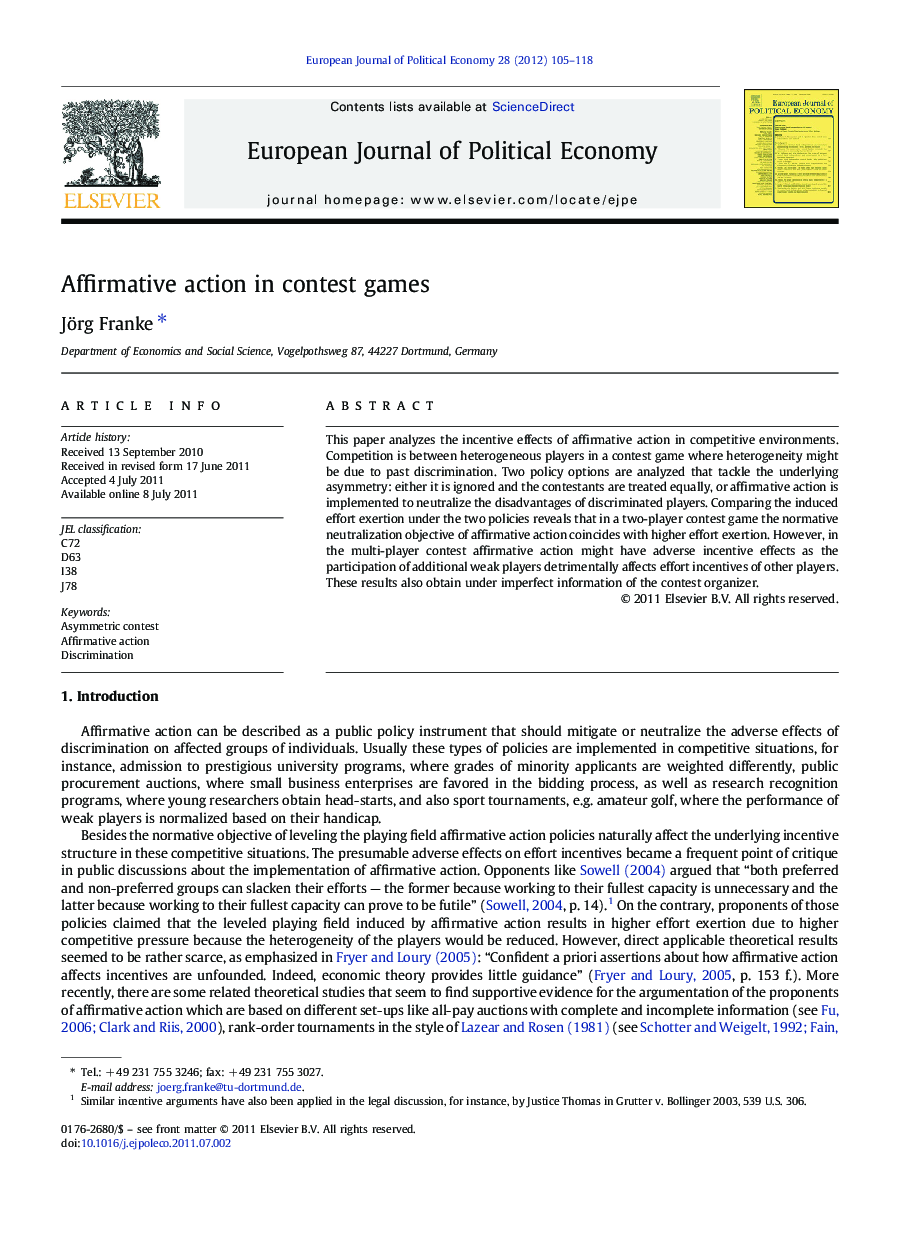| Article ID | Journal | Published Year | Pages | File Type |
|---|---|---|---|---|
| 5068286 | European Journal of Political Economy | 2012 | 14 Pages |
This paper analyzes the incentive effects of affirmative action in competitive environments. Competition is between heterogeneous players in a contest game where heterogeneity might be due to past discrimination. Two policy options are analyzed that tackle the underlying asymmetry: either it is ignored and the contestants are treated equally, or affirmative action is implemented to neutralize the disadvantages of discriminated players. Comparing the induced effort exertion under the two policies reveals that in a two-player contest game the normative neutralization objective of affirmative action coincides with higher effort exertion. However, in the multi-player contest affirmative action might have adverse incentive effects as the participation of additional weak players detrimentally affects effort incentives of other players. These results also obtain under imperfect information of the contest organizer.
⺠Affirmative action (AA) is modeled as normatively derived (biased) contest rule. ⺠AA affects contestant's incentives to exert effort. ⺠In two-player contests AA results in higher total effort exertion. ⺠In multi-player contests same results hold if player heterogeneity is not too severe. ⺠Results are robust with respect to partial information of contest administrator.
